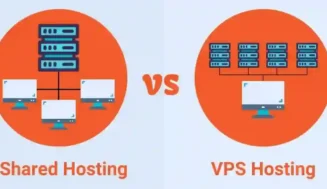VPS Hosting for E-commerce: Boosting Your Online Store’s Performance
In the digital age, e-commerce is thriving, and businesses are constantly seeking ways to improve their online presence and sales. One crucial aspect that significantly impacts e-commerce success is web hosting. In this comprehensive guide, we will delve into VPS (Virtual Private Server) hosting and how it can be a game-changer for your online store. Let’s explore the ins and outs of VPS hosting for e-commerce, from its benefits to selecting the right plan and optimizing your site for peak performance.
Introduction
Running a successful e-commerce store is a dynamic and multifaceted endeavor. A critical component that can’t be underestimated is the choice of web hosting. VPS hosting has emerged as a reliable solution, catering to the specific needs of e-commerce businesses. In this guide, we’ll explore why VPS hosting is the ideal choice to elevate your online store’s performance and user experience.
Understanding E-commerce Hosting Needs
Before diving into the world of VPS hosting, it’s crucial to understand the unique hosting needs of an e-commerce website. E-commerce sites, unlike standard websites, are data-heavy and transaction-oriented. They require a hosting solution that can offer stability, reliability, and lightning-fast page load times. Additionally, e-commerce websites must handle a multitude of user interactions, including product searches, shopping cart management, and secure payment processing.
What Is VPS Hosting?
VPS hosting is a powerful and flexible hosting solution that bridges the gap between shared hosting and dedicated servers. It operates by virtually partitioning a physical server into multiple virtual servers, each with its dedicated resources. This ensures that your e-commerce site has the necessary power and speed to handle high traffic volumes and complex operations.
Advantages of VPS Hosting for E-commerce
1. Enhanced Performance
With VPS hosting, your e-commerce site can enjoy dedicated resources such as CPU, RAM, and storage. This translates to faster loading times and a seamless user experience, ultimately leading to higher sales and customer satisfaction.
2. Scalability
VPS hosting allows for easy scalability. As your e-commerce business grows, you can effortlessly upgrade your hosting plan to accommodate increased traffic and data demands. This scalability ensures that your website remains responsive and reliable at all times.
3. Isolation and Security
In a VPS environment, your online store is isolated from other websites on the same server. This isolation enhances security, reducing the risk of data breaches and downtime. You can also implement security measures specific to your e-commerce needs, safeguarding sensitive customer data.
4. Customization
VPS hosting grants you greater control over your hosting environment. You can install and configure software, choose your preferred operating system, and customize settings to suit your e-commerce platform’s unique requirements.
5. Cost-Effective
Compared to dedicated hosting, VPS hosting is a cost-effective option that offers premium performance. It strikes a balance between the benefits of dedicated servers and the affordability of shared hosting.
Choosing the Right VPS Hosting Plan
Selecting the right VPS hosting plan is a pivotal decision for your e-commerce success. Here are some key factors to consider:
1. Resources
Evaluate the resources your e-commerce store requires. Consider factors like CPU, RAM, and storage capacity. Ensure that the chosen plan can accommodate both your current needs and future growth.
2. Uptime Guarantee
Check for an uptime guarantee from your hosting provider. E-commerce businesses can’t afford extended downtime, so look for providers with a strong commitment to uptime.
3. Managed or Unmanaged
Decide whether you need managed or unmanaged hosting. Managed hosting offers more support, while unmanaged hosting grants greater control.
4. Customer Support
Prompt and effective customer support is essential. Test the responsiveness of your hosting provider’s support team to ensure that they can address issues quickly.
Optimizing Your E-commerce Website for VPS Hosting

Once you’ve chosen your VPS hosting plan, it’s vital to optimize your e-commerce website to make the most of this hosting solution. Here are some tips to consider:
1. Content Delivery Network (CDN)
Implement a CDN to distribute your content efficiently and reduce page load times for customers around the world.
2. Regular Backups
Regularly back up your e-commerce data to prevent data loss in case of unforeseen incidents.
3. Mobile Optimization
Ensure your website is mobile-friendly to cater to the growing number of mobile shoppers.
4. Caching Mechanisms
Use caching plugins and mechanisms to minimize server load and enhance website speed.
Security in E-commerce VPS Hosting
Security is paramount for e-commerce websites. Here are some best practices for securing your e-commerce site on a VPS hosting platform:
1. SSL Certificate
Install an SSL certificate to encrypt customer data and provide a secure shopping experience.
2. Firewall and DDoS Protection
Employ a robust firewall and DDoS protection to safeguard your website from cyber threats.
3. Regular Updates
Keep your website and all software up to date to patch vulnerabilities and enhance security.
4. Regular Security Audits
Perform regular security audits to identify and rectify potential vulnerabilities.
Scaling Your E-commerce Business with VPS Hosting
One of the exceptional benefits of VPS hosting is its scalability. As your e-commerce business expands, you can easily adjust your hosting plan to meet the growing demands. Whether it’s accommodating a surge in traffic during the holiday season or expanding your product catalog, VPS hosting provides the flexibility your e-commerce site needs to thrive.
FAQs about VPS Hosting for E-commerce
1. What is the difference between VPS hosting and shared hosting for e-commerce?
VPS hosting offers dedicated resources and greater performance compared to shared hosting. It’s an ideal choice for e-commerce websites that require speed and reliability.
2. Is VPS hosting suitable for small e-commerce businesses?
Yes, VPS hosting is suitable for businesses of all sizes. It provides the scalability to grow with your business while offering stability and security.
3. How do I migrate my existing e-commerce website to VPS hosting?
Migrating to VPS hosting can be a seamless process with the help of your hosting provider. They can assist in transferring your website, databases, and configurations.
4. Can I host multiple e-commerce websites on a single VPS?
Yes, you can host multiple e-commerce websites on a single VPS, as long as the plan’s resources can support the combined traffic and data requirements.
5. Are there any disadvantages to VPS hosting for e-commerce?
The main drawback of VPS hosting is the need for technical expertise to manage and maintain the server. However, many hosting providers offer managed VPS plans to mitigate this challenge.
Conclusion
In the competitive world of e-commerce, the performance and reliability of your online store can make or break your business. VPS hosting, with its enhanced performance, scalability, security, and customization options, is the ideal solution for e-commerce websites looking to thrive in the digital marketplace. By understanding your hosting needs, selecting the right plan, optimizing your website, and ensuring top-notch security, you can provide your customers with a seamless shopping experience while positioning your e-commerce business for success. Make the wise choice today and elevate your e-commerce game with VPS hosting.







